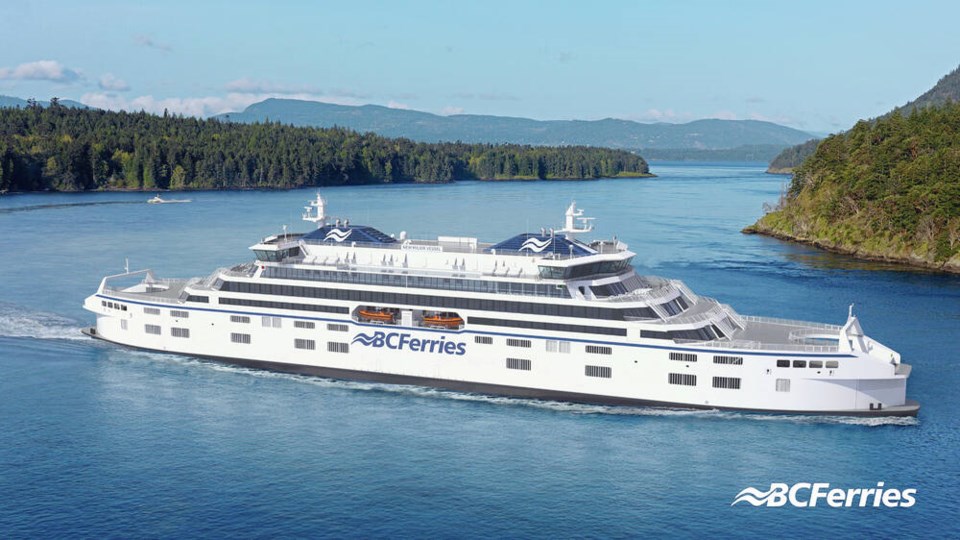B.C. Ferries is unveiling plans for new major vessels that feature more space for passengers and vehicles and greener technology.
Up to seven new major vessels will join the fleet, with the first set to arrive in 2029.
A request for proposals to supply the new ships, which will replace six older ships serving the busiest routes between Vancouver Island and Metro Vancouver, is expected to go out this summer.
B.C. Ferries president Nicolas Jimenez said in a Monday statement that the new vessels, which he called “greener, more efficient and standardized,” represent the largest part of the capital plan to modernize the ferry system.
“They will significantly increase daily capacity, provide an enhanced customer experience, improve reliability and reduce environmental impacts.”
Higher capacity in the new major ferries will help serve the province’s growing population, the statement said.
New major vessels will carry up to 360 standard-sized vehicles and 2,100 people each. The retiring vessels can carry 250 to 310 vehicles and 1,200 to 1,500 people.
For several years, B.C. Ferries has been moving toward standard designs for specific classes of ferries, such as its smaller Island and Salish-class vessels, saying that allows the company to move vessels between routes for maintenance or refits without disrupting customer travel.
Vessels scheduled to retire between 2029 and 2032 include Queen of Coquitlam, Queen of Alberni, Queen of Cowichan, Queen of New Westminster, Queen of Surrey and Queen of Oak Bay.
B.C. Ferries and naval architectural firm LMG Marin AS are working on the basic design for the new ferries, which will be built to be more fuel efficient and have fewer greenhouse gas emissions, the company said.
The design will use engines capable of running on bio- and renewable fuels. Also in the plan is a battery-hybrid propulsion system, which would see vessels able to run on battery‑electric power once shore-based recharging infrastructure is available.
On Monday, B.C. Ferries issued a request for supplier qualification for the new major vessel program that closes March 22.
The bidding process to build the new ships is open to qualified local, national and international companies.
The ultimate cost of the new vessels is unknown at this stage.
When B.C. Ferries issued a request for interest to build five major vessels in 2018, a senior official estimated the project could cost $700 million to $1 billion.
>>> To comment on this article, write a letter to the editor: [email protected]



